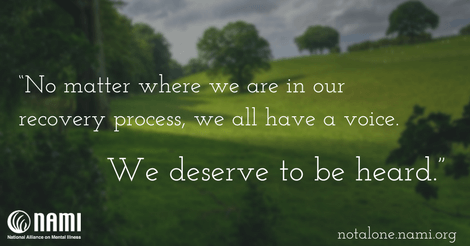
One of the most detrimental misconceptions surrounding mental health advocacy is the notion that advocates ‘have it all together.’ Although we, as mental health advocates, write and speak on some of the most vulnerable aspects of our lives, candidly addressing our own struggles in the hope of spreading awareness and helping others feel less alone, we are perceived as virtually infallible. We are faced with the pressure to remain composed at all times, to be ‘self-care superstars’ and to advocate in a socially conscious way, but the desire to continue fighting, the expectation that we must always smile and the notion that we must never have a difficult day can cause our mental health to plummet. This polarizing dichotomy between the perception and reality of mental health advocacy affects me daily, on a deeply personal level. Despite my candor regarding my experience with mental illness, others in the mental health community believe I am winning the battle against my own mind, but they cannot see the days I struggle with self-care and fight to stay afloat; my mind frozen by anxiety and numbed by depression.
I began writing about my mental health conditions because I didn’t want people to feel as alone as I felt when I was diagnosed. I try to be as honest as possible in the life I am experiencing but at times it gets hard. There is pressure to not have a bad day, not break down, to show no signs of weakness. It’s silly because it goes against everything I advocate for. I advocate for openness and free expression of how one feels. I want to say I am always winning because I don’t want others to give up. I always smile because I feel the need to be strong for others. But I forget that at times I need to let go of all that control so that others can be strong for me.
It’s so easy to fall into the trap of presenting myself as 100 percent better. All I wanted that fairy tale recovery story, but as we all know — fairy tales are not real. My real story, of being better for a while, getting worse, being better getting worse again, is the most accurate — but also the most inspirational and stigma challenging. I realized, after trying to be perfectly well, that I didn’t need to be perfectly recovered to make change. That I can write awesome blogs, create amazing programs and tell compelling stories even if I am not well — as long as I love and take care of myself. All I can do is fight for the change I think is good; highlight the voices I see passed over. Lastly, I have also given myself permission to say screw the haters. I have been in so many meetings where I had to present well to appease some doctor, politician or community leader who thought people living with mental illness were too fragile to participate in change that affects them. Now — when someone suggests that I need to be x amount of well for x amount of time to participate — I kindly remind them that I kick just as much ass as they do even if I am unwell. Plus, I have a seven-pound Chihuahua who always has my back.
No matter how inspirational it is to speak, there are the days when it is hard to get out of bed or days where it feels difficult to tell the same story one more time. Two month ago, I was having one of those days where I needed a little push to get out of bed. I was speaking to sophomores at a high school to their health classes. It was early in the morning and the class was super quiet. Just as I began to wonder if anyone was listening our time was up and 15-year-old girl walked up and gave me a hug I will never forget. I felt her hot tear fall on my shoulder. She said that she had just been diagnosed with schizoaffective disorder two days ago and had been contemplating suicide ever since because she felt so alone. I asked her how she felt now and young Maria said “I’m filled with hope and dreams for my future. I now feel strong enough to share my true self with my family and friends. Someday I hope to be just like you.” That day everything changed for her and for me. This is why I speak. We don’t have to be alone in all this. We are stronger together. No matter where we are in our recovery process we all have a voice. We deserve to be heard. Gaining pride and confidence from speaking up is what gives us hope and makes all the ups and downs worth it.

